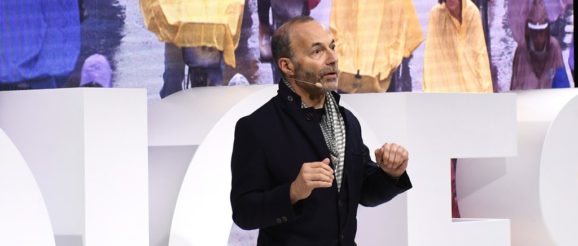Dude, Where Is My Flying Car? | News & Analysis, VOICES, Technology & innovation | BoF

OXFORDSHIRE, United Kingdom — The automobile changed the world, rebooting everything from shopping to cities to food distribution to warfare. So, what will the cars of the future look like? Will they be more Jetsons, Minority Report, Blade Runner or something else? This was the question raised on the #BoFVoices stage by Andrew Blau, a managing director in the risk intelligence practice of Deloitte & Touche in San Francisco. “Well here’s a spoiler: I don’t know and nobody knows,” admitted Blau. “Predictions are interesting, but most predictions are traps because the future is unpredictable. I’m more interested in how and why the future will surprise us. Because it does.”
There are many factors that will impact the future of mobility. “Human nature and values are enduring,” said Blau, “but human context is changing.” Key drivers include population growth, rapid urbanisation, ageing, climate change and the exponential acceleration of technology. The cars of the future are likely to be connected, autonomous, shared and electric (the auto industry calls this ‘CASE’). But the most profound answers to how people get around are rooted in why people, in the years to come, will decide to travel when the very nature of work, shopping and socialising — the main reasons why we move from A to B — are being fundamentally reshaped and physical things, from dresses to dinner, are as likely to come to us as we are to go to them.
Another question that Blau has been pondering: “If we assume that we’re heading for these connected, autonomous, shared vehicles, what will those systems be designed to do best? Who will run them and who will they be designed to serve? Will they be optimised for individual user experience or the best social or system performance? Good for me, or good for all of us?”
It’s likely that the answer will be different in different places, and although technology and business models are evolving quickly, cultural values take much longer to change. “You cannot move deep culture at the speed of technology,” said Blau. “Every complex system is made of many parts changing at different rates. Change doesn’t happen all at once or in one direction.”
“The future of mobility is not a straight line,” concluded Blau, ultimately offering more questions than answers and advising attendees looking for clues to focus on what’s changing in society, government and the built environment, rather than technological innovation.
“Don’t be fooled: the auto companies don’t control this; the tech companies don’t control this,” he said. “They’re all navigating change too, learning and adapting as best they can. But they’re not the only authors of this story. This is not a tech story; this is not an auto story. It’s a cultural story. It’s a social story. It will be about learning what’s at the intersection of possibility, need, and desire.”
To learn more about VOICES, BoF’s annual gathering for big thinkers, visit our VOICES website, where you can find all the details on our invitation-only global gathering.
